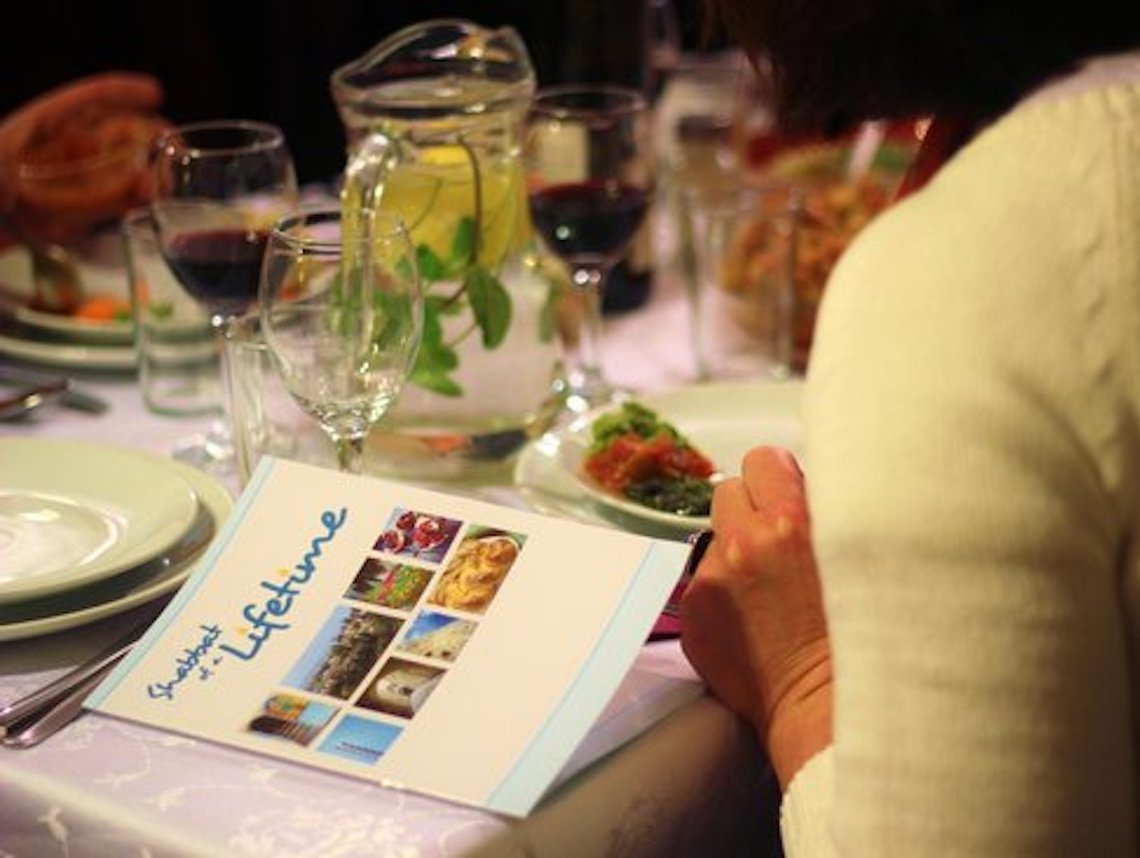
The vast majority of tourists who visit Jerusalem go to the Old City and, depending on their interests and beliefs, make a point of seeing archaeological sites, eating in the Mahane Yehuda Market or visiting the Israel Museum.
What few get to experience is an authentic Shabbat meal in the home of a Jewish family.
Six years ago, Michelle Cohen and her husband, Nati, a young Jerusalem couple, decided to offer Shabbat dinners to groups and individuals seeking a genuine Shabbat dinner experience.
Sensing a business opportunity as well as a way to share the best of Israel with tourists, they launched Shabbat of a Lifetime, a company that Cohen said has grown to more than 70 host families that have offered a Shabbat dinner experience to more than 30,000 visitors from 100 countries.
For a fee that Cohen says is roughly equivalent to the cost of a Friday night dinner in a hotel restaurant, hosts offer Shabbat dinner (including ones customized for a variety of dietary needs, like allergies) tailored to overseas guests. Rituals are explained and questions encouraged.
The goal, Cohen said, “is to create positive encounters between them and Israelis. The tourists have a positive experience and return home as [goodwill] ambassadors.”
Cohen said she and her husband got the idea for Shabbat of a Lifetime after spending six months in India.
“During our time in India, we realized that the most meaningful part was meeting the local people and learning about their culture. There are maybe 2 million non-Jewish tourists who come to Israel every year, and we asked whether they are getting the opportunity to meet local Israelis in their homes. The answer was no.”
About 95 percent of guests come as part of a tour group, while the rest book directly via the company’s website (shabbatofalifetime.com). Ninety-nine percent are non-Jewish tourists or Jewish tourists who are not religiously observant.
“Let’s say you’re part of a group of 15 Chinese businessmen [who are] in Israel to understand how to invest in Israel. One part of your trip will be to join a Jewish family at a Shabbat meal to learn about Jewish culture and Shabbat traditions. Or, let’s say you’re an unaffiliated Jewish family who [is] in Israel to celebrate a daughter’s bat mitzvah. Rather than spend Friday night in a hotel, you can join an Israeli family.”
Some of the tourists hosted by Shabbat of a Lifetime are in Israel on dual-narrative tours that offer visitors the opportunity to spend time with Israelis and Palestinians.
“In the morning, they visit Palestinian farmers, and on Friday night, they’re sitting with a Jewish family in Jerusalem and having chicken soup. We’ve hosted a group of African pastors, students on university programs and Jewish women looking to strengthen their Jewish identity” and who had rarely or never experienced Shabbat before visiting Israel, Cohen said.
While the tourists learn about Israeli culture and food, “it’s eye-opening for the host, as well,” Cohen said. “We’ll have encounters between German tourists and a religious family, for example, and we have many, many groups from China.”
From her observations, Cohen said, Chinese tourists “tend to be very interested in the entrepreneurial mind of Jews and Israelis. They want to know what it is about these traditions that create the foundation for Israeli innovation.”
All families that host meals for Shabbat of a Lifetime observe Shabbat, “but there is a whole range of backgrounds and communities they identify with,” Cohen said. Families also must have the capacity to host a group of 14. One family can host 50.
“We prepare the host family about what it will entail to host, say, 30 Southern Baptists,” Cohen said. Although the food is important, so too is an understanding of their guests’ unique backgrounds.
“Our purpose is to facilitate genuine encounters,” not formal, stiff, overly polite dinners, Cohen said.
Yehoshua Looks and his wife, Debbie, have hosted more than 150 Shabbat of a Lifetime meals during the past four years. “We host up to 36 people and it sometimes ends up being a couple more,” he said, laughing. “We turn over our living room-dining space to Shabbat of a Lifetime. They provide the food, the tablecloths, the chairs. We like to serve on actual china, which goes into the dishwasher.”
Looks said his family became religiously observant long ago, “and part of our process was being involved in a very warm community in St. Louis.”
Even back then, Looks, an Orthodox rabbi, said, “we’d set a couple of extra place settings,” in anticipation of guests at the Shabbat dinner table. “We created a family dynamic of having an open home and welcoming people from all types of backgrounds.”
At Friday night dinner, Looks and his wife explain the reason Jews sing “Shalom Aleichem” and “Eshet Chayil,” and bless their children before reciting blessings over the wine and challah.
“With some groups, the reaction is more cultural, for others, it’s more spiritual,” he said. “We get a lot of Christian evangelicals who are fascinated by the idea of Shabbat.”
Regardless of their religious or cultural backgrounds, Looks said, his guests seem to enjoy discussing the Sabbath.
“We live in a world where we’ve lost the experience of rest. I’m 60-something and grew up in a world where, on Sundays, the stores were closed. There was more time and space for family bonding.”
Looks likes to tell his guests that Shabbat is his time to disconnect. “I share with all the groups that my favorite Friday afternoon activity is to unplug my internet, close down the routers. I even challenge some of our guests to try to shut off their cellphones for 24 hours.”
Looks hopes his guests — who include many secular Jews from abroad — come away with the sense that Shabbat “isn’t about what you can’t do but instead [is] a time to open ourselves up and connect on a more spiritual level to our families, our communities and to God.”
Although hosting week after week can be tiring, Looks said the “incredible warmth” his guests bring has enriched him and his family beyond measure.
“After living in Israel for 20 years, it’s easy to become a little complacent about Israel,” Looks admitted.
“To hear stories from people who see Israel with fresh eyes invigorates us. It makes us excited about living in Israel all over again.”























 More news and opinions than at a Shabbat dinner, right in your inbox.
More news and opinions than at a Shabbat dinner, right in your inbox.